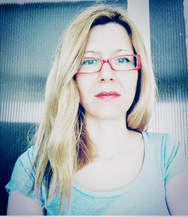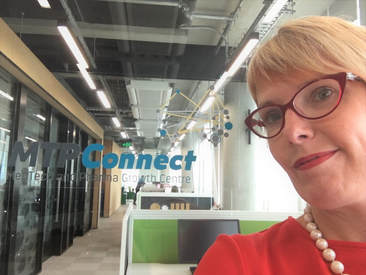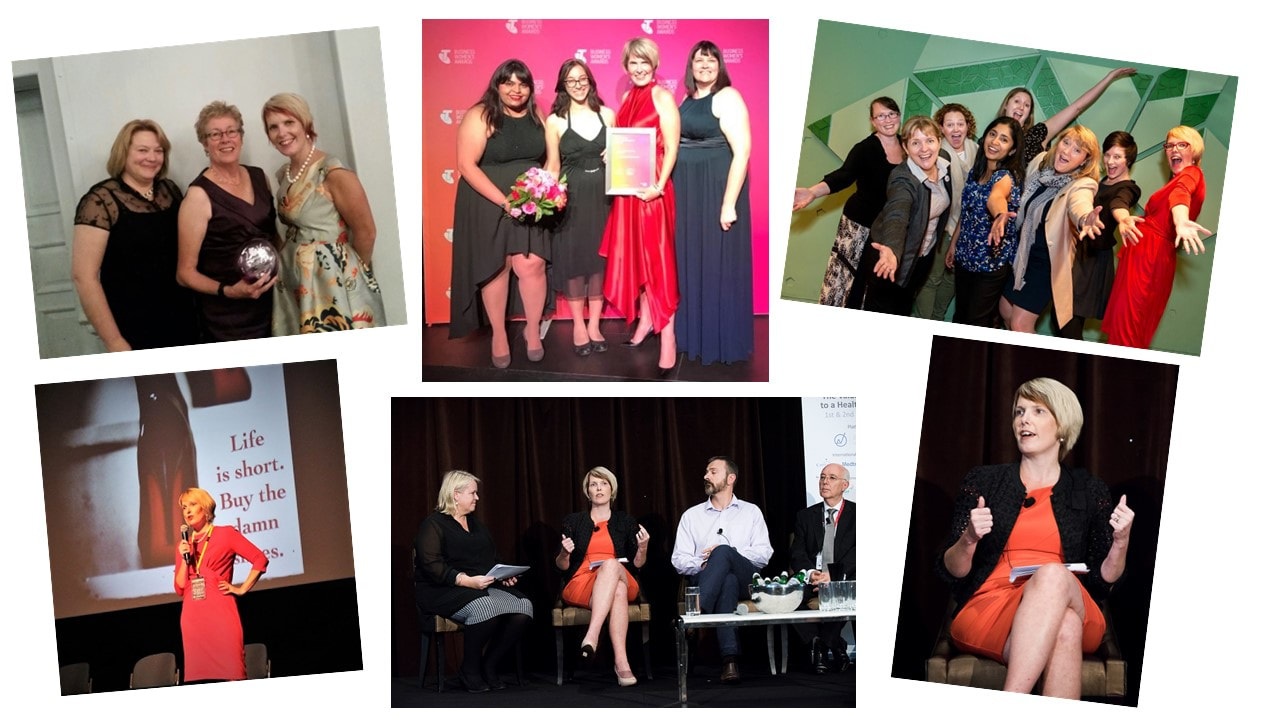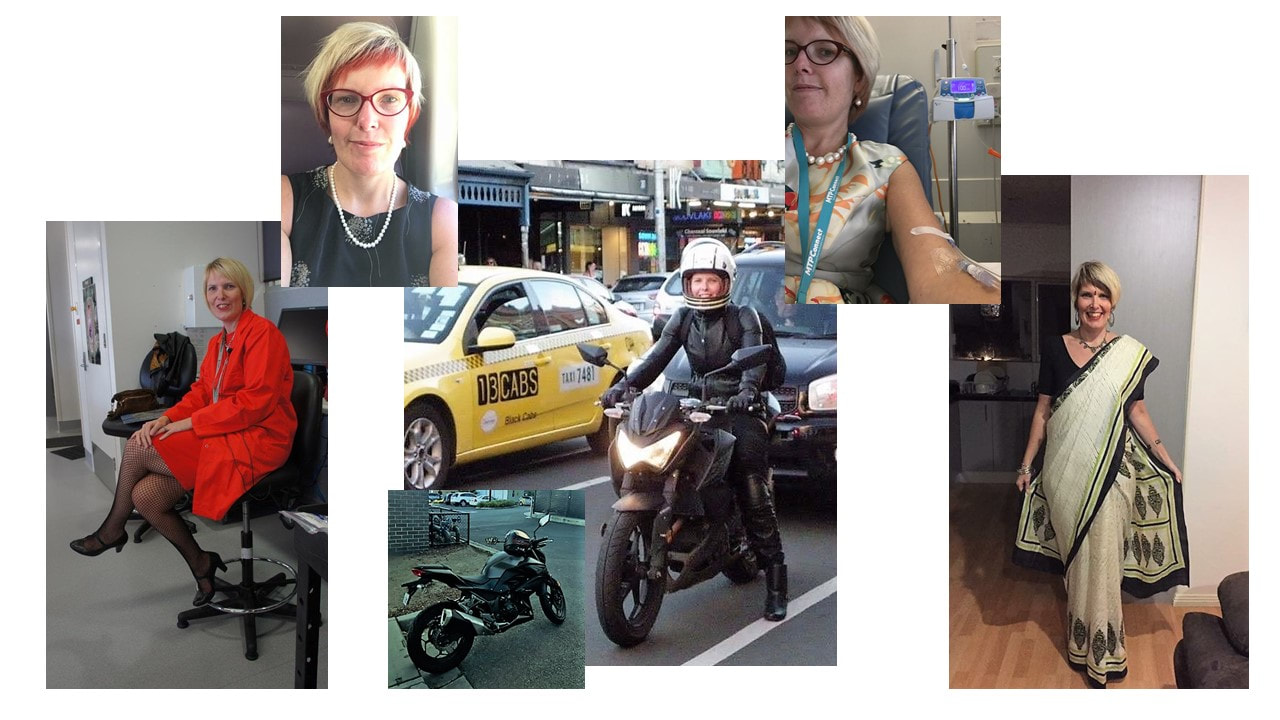|
By Lidiya Angelova
If you think that scientists are just dull people who don’t see further than the lab bench, you are completely wrong. I have the pleasure of presenting to you an inspiring scientist who makes a real difference in the world of science and innovation.
Dr Melanie Thomson is the General Manager of Education, Skills and Events at the Medical Technologies and Pharmaceuticals Industry Growth Centre in Australia (MTPConnect). There she is using her pioneering skills in science and communication to help connect scientific discoveries with business. As recognition of her work, she received the 2017 Telstra Victorian Public Sector and Academia Finalist Award. Dr Mel Thomson, as she is better known, has a PhD in Microbiology and Master of Research in Biomolecular Structure and Function from the University of York, UK and Bachelor’s degree (Honours degree) in Immunology and Microbiology from the University of Melbourne. Before taking the position at MTPConnect, Dr Thomson worked as a postdoctoral fellow at the Leeds Institute of Molecular Medicine, UK. Later she moved back to Australia to take a role as head of her own research group as a Lecturer at Deakin Medical School and the Geelong Centre for Emerging Infectious Diseases. She has since left academia to take a high impact role at MTPConnect, a new national Growth Centre, which aims to expand the economic input of the MedTech, Pharmaceutical and Biotech Sector in Australia. She is the one of the originators of crowdfunding initiatives for academia in Australia and is an active member of the women in STEM community. She also acts as a patient advocate and is often asked to speak on the ‘Hype versus Hope’ paradox presented by the research and development processes of medical research. Dr Thomson’s lively social networking skills gained her thousands of twitter followers. Twitter is where I found out about her and we got connected. She kindly agreed to respond to several questions for Scientista. When did you know that you want to become a scientist? I decided to become a scientist as a young girl, growing up on a farm in Australia. I was fascinated with observing and interacting with nature. Then, when I was aged 11-years-old, I had a teacher who encouraged us to do much more maths and science than was on the curriculum. I will never forget my ‘first experiment’ in that class, which was to lower the freezing and boiling point of water using salt. From that moment on, I didn’t look for other careers until I became disillusioned as a tenured academic in 2016. What’s the most challenging aspect of being a woman in STEM? I would say that the most challenging aspect is the constant ‘hand wringing’ that has happened at a global policy level for decades, about the dearth of women in STEM and the ‘leaky pipeline’. Most proposed solutions are focused on the wrong target, as they presume ‘women are deficient’ in this regard. This has not been my experience or those of my female colleagues in my large global network. Very few programs have taken a systems approach to the structural and cultural barriers that ‘lock out’ more women and under-represented minorities from the STEM industries. It’s incredibly frustrating to me to constantly be expected to be a role model to help encourage more of these groups into STEM, when the system is so broken and unable to adapt fast enough to embrace and include those whose ‘face doesn’t fit.’ Crowdfunding of scientific research is a relatively unknown idea. Could you tell us more about it? Crowdfunding for the Arts and Media (to produce a book, a film, or an album), as well as to fund prototype development in technology are well established routes to raising the capital for finite goods. For something more long term and without a defined endpoint, like scientific research, it is more about direct engagement with members of the public. They need to see the ‘worth’ of what you and others are trying to achieve, before pledging funds to help you. In medical research, it was easy to explain the significance of the research, but I did face some ambivalence or hostility, as my fellow tax payers thought that something so important (such as the fight against superbugs) should be fully funded via other sources, such as government grants. Crowdfunding for ecological programs which involve saving photogenic animals from extinction or that have a ‘cool! It’s about space!’ aspect to it tend to do better. It can sometimes be a popularity contest, to some extent. Could you tell us more about your work for MTPConnect? My current role as the General Manager of Education, Skills and Events is, in part, to make sure that the current courses and training offered around the country in Australia, are meeting our mission – to help to grow the MedTech, Biotech and Pharma ecosystem here in Australia. By education, we look to the whole spectrum: from technicians who work as contractors for pharmaceutical manufacturers and must understand what a ‘clean room’ is, to vocational courses and skills competency training for people who work on ‘the factory floor’ in manufacturing; all the way through to undergraduate and postgraduate degrees, and into early career research scenarios. MTPConnect also supports programs that teach early career researchers industry-relevant skills so that they can engage more appropriately outside academia. The focus is to help people coming through education pathways and who become bench researchers, to learn entrepreneurialism and commercialisation. The programs we support aim to give them the skills so they can understand how to fully capitalise on their future discoveries and have the confidence to develop a medtech or pharmaceutical product. What do you want to say to the next generation of young people who want to do science? STEM knowledge is no longer an ‘elective’ that you can choose to opt out of early in your education pathway. It increasingly underpins the conceptual basis for how we interact with the world and each other. Higher level STEM knowledge is valued by business and so taking these courses does not mean you will end up becoming a scientist in a conventional ‘white coat’. The next generation of scientists are going to have to face huge global challenges, which will need interdisciplinary approaches and problem solving abilities. My advice would be to make sure you develop skills and networks outside of the ‘ivory tower’ so that you will have the flexibility to adapt your critical thinking and problem solving talents. What is your favourite book and movie? My favourite book is Jane Eyre by Charlotte Bronte, as it is a tale of resilience and focused resolve, whilst still maintaining humility and humanity, in the face of inhuman treatment. Jane has a strong sense of self and natural justice and this never wavers. My favourite movie is the original Blade Runner, as it examines the blurred interface between humans and sentient machines. I think the themes are going to become increasingly more pertinent as we rely on AI in the future. Do you have a hobby? Since being diagnosed with tumefactive multiple sclerosis (MS) at the end of 2014, I have got my motorcycle licence – mostly as I needed something more dangerous than the possible side effects of the treatment I am on. Also partly as I can still walk and balance, as the disease is in its early stages. My motorbike is a Z300 Kawasaki in charcoal, who I call Uma after Uma Thurman, who played the Bride in ‘Kill Bill’ and riding her makes me feel like I have triumphed over my disease. Is there a place you want to visit, but haven’t chance to? I would have liked to visited Africa by now, but my MS treatment renders me immunocompromised and unable to receive the live yellow fever vaccine. So I have to balance the risk of contracting infectious diseases, with my desire to travel. So far, since my treatment began, I have limited my travel to destinations that have a low burden of infectious disease, i.e. developed nations in Europe and North America. Your favourite quote. “Think of yourself as dead. You have lived your life. Now, take what's left and live it properly. What doesn't transmit light creates its own darkness.” ― Marcus Aurelius, Meditations 
About the Author
Lidiya’s curiosity about “how life works” led her to complete a Master’s degree in Biology and a PhD in Microbiology. After working for a few years as a researcher at the National Institute of Health in Rockville, MD, USA, followed by a career in science communications and writing, she is looking forward to going back to the lab where can apply her fresh, new ideas. Lidiya loves to travel and has lived in many countries. She is still looking for a place to settle down with her young daughter. Lidiya is thrilled to be a part of the Scientista bloggers team, and loves being able to connect with wonderful female scientists at all stages of their careers, while writing about science and life. Comments? Leave them below!
2 Comments
Prof J. Crabtree
8/2/2020 05:34:19 am
Please could you send me Dr. Mel Thomson's email address. It is needed for submission of a manuscript where she participated in the work at the University of Leeds, UK.
Reply
2/9/2021 09:31:27 am
Dr Mel Thomson's really a helpful person i follow on her twitter. Great work for sharing your thoughts.
Reply
Leave a Reply. |
SPOTLIGHTSMeet our Scientista Spotlights -- current-day women in STEM and women from science history -- and find your role model! Read opinion editorials and history pieces to get additional inspiration.
WHAT'S NEWYOU MIGHT ALSO LIKE
WHAT'S HOTCONNECT WITH USARCHIVES
June 2018
|
The Network for Pre-Professional Women in Science and Engineering
The Scientista Foundation is a registered 501(c)(3) -- Donate!












 RSS Feed
RSS Feed